| Age | Expressive Milestone | Receptive Milestone | When to Refer |
|---|---|---|---|
| 1 | • 0-6 months: coos/babbles, uses different sounds, laughs • 7-12 months: first true words • 12 months: vocabulary of 3-5 words | • 0-6 months: awareness of sounds • 12 months: recognizes own name, uses gestures (waving, reaching, etc.) | • Not responding to name • Not making eye contact • Not using any true words |
| 2 | • 18 months: vocabulary of 10-20 words, requests verbally • 24 months: Uses 2-3 word sentences • Vocabulary of 300 words • Uses consonants at the beginnings of words | • 18 months: Recognizes familiar people, pictures, and objects • 24 months: understands questions, follows simple commands | • Not putting 2 words together • Not using new words each week • Doesn’t follow simple commands • Doesn’t point to body parts • Not understood at least 50% of the time |
| 3 | • 1000 word vocabulary • 3-4 word sentences • Names at least one color • At least 75% intelligible | • Follows 2 step commands • Plays interactively with other children | • Limited vocabulary • Doesn’t interact with other children • Doesn’t follow 2-step directions • Not understood at least 75% of the time |
| 4 | • Uses 4-5 word sentences, asks/answers simple “who”, “what”, “when”, “where”, and “why” questions • Is understood by people outside of family • At least 85% intelligible | • Follows 2-3 step commands • Sits attentively for a story | • Doesn’t ask/answer questions • Doesn’t recall events from a story • Not understood at least 85% of the time |
| 5 | • Uses 5-6 word sentences • Can define objects by function, • Uses verb tenses • Uses most sounds correctly | • Understands opposites • Hears and understands most of what others say • Uses adult-like grammar | • Doesn’t name some letters/numbers • Doesn’t use detailed sentences • Doesn’t communicate well with adults/children • Not understood at least 95% of the time |
Social Skills: What is Pragmatic Language?
Pragmatics refers to the way we use language for things like getting information, commenting, seeking help, etc. Sometimes these are referred to as social language skills. These skills are needed to communicate meaningfully with others, to manage behavior, and to form relationships with others. Challenges with pragmatic social language are common in children with learning disabilities, ADHD, developmental delays, and autism. SLPs can assess and treat pragmatic language differences for social skills, as well as for executive functioning.
| Age | Pragmatic Milestone | When to Refer |
|---|---|---|
| Infant – Toddler | • 6-8 Weeks: makes eye contact • 3 months: uses social smile • 6-8 months: coos/babbles • 8 months: Plays “pattycake”, waves “bye-bye”, gives “high five” • 9-12 months: points to things • 12 months: “shows off” for attention, responds to name when called, shows changes in facial expressions | • Differences in eye contact and response to name • Doesn’t coo or babble • Doesn’t point to things or people • Doesn’t seek attention from adults to “show off”, request help • Doesn’t wave or say “hi”, “bye” • Doesn’t seem interested in social games (ex. Peekaboo, high five, etc.) • May play with toys/items in a different way than peers |
| Preschool | • 18-24 months: engages in parallel play near other children • 2-3 years: plays with other children • 3-4 years: can have a simple conversation, takes turns with peers, and willingly shares toys • 4-5 years: asks questions for clarification, recognizes personal space | • Doesn’t stay on topic during a conversation • Doesn’t play interactively with other children, prefers to play alone • Difficulty recognizing personal space and/or allowing others in their space • Difficulty sharing or taking turns • Not talking at all or as much as peers • Makes comments that don’t seem to go with what’s being talked about |
| Early School Age (Grades K-5) | • Asks/Answers Questions • Doesn’t interrupt teacher or blurt out answers • Recognizes and cares for emotions of other people • Adjusts communication based on audience (recognizes interest, age of communication partner, etc.) | • Doesn’t ask/answer questions, doesn’t ask teacher/parent for help Interrupts and may blurt out in class • Doesn’t seem to recognize emotions of others • May seem defiant • Doesn’t seem interested in the interests of others/talks a lot about their own interests |
| Later School Age (Grades 6-12) | • Able to get self ready for school, complete homework, and organize personal things • Can plan, execute, and turn in an assignment for school (executive functioning skills) • Can carry on a conversation with both adults and peers | • Difficulty interpreting body language and tone of voice • Difficulty planning, completing, and organizing school work • Doesn’t seek help from adults • Has challenges forming and maintaining relationships • Needs more help than peers to keep up in school, stay on task, and/or stay organized • May be bullied |

